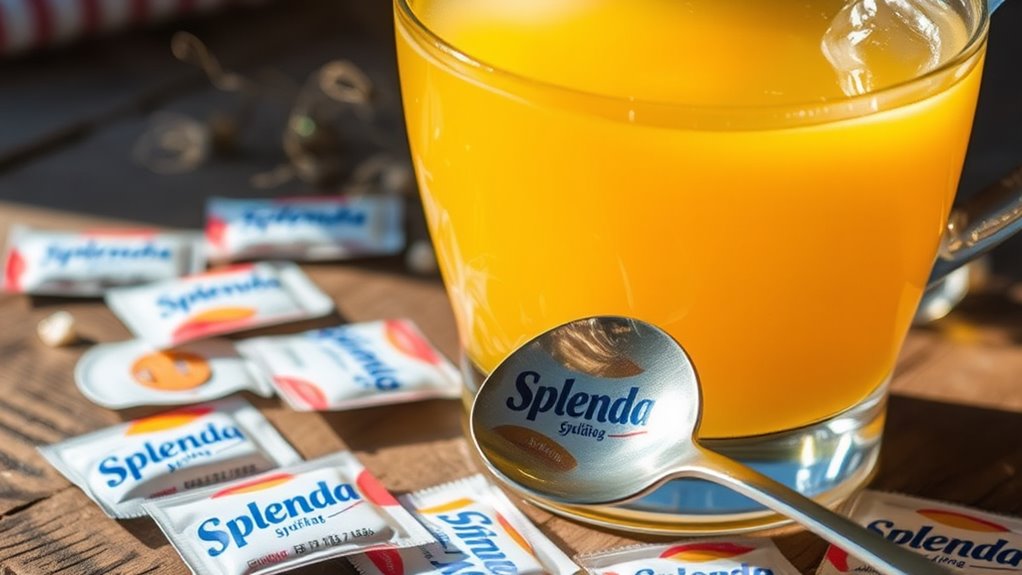How Does Splenda Break Your Fast?
Are you wondering if Splenda can break your fast? Discover the surprising effects it may have on your body and fasting benefits.

Using Splenda during your fast can potentially break your fast by triggering an insulin response in some individuals, despite its low-calorie content. Sucralose, the main ingredient, may not greatly raise blood glucose levels, but the small amount of dextrose could affect insulin sensitivity over time. Individual reactions vary, and frequent use might disrupt metabolic benefits associated with fasting. It's important to monitor how your body responds to sweeteners. Discovering alternative options could enhance your fasting experience.
Have you ever wondered how Splenda affects your fasting routine? When considering artificial sweeteners during your fast, Splenda, primarily composed of sucralose, often comes into play. Sucralose is a zero-calorie sweetener, but it's essential to mention that Splenda contains small amounts of dextrose, a type of sugar, contributing less than 4 calories per serving. This minimal caloric content allows Splenda to be marketed as zero-calorie, even though it's not entirely calorie-free.
Splenda, primarily sucralose, is marketed as zero-calorie but contains small amounts of dextrose, potentially impacting your fasting routine.
So, how does this impact your fasting? Fasting is defined as abstaining from anything that contains calories or can provoke an insulin response. While sucralose itself doesn't notably raise blood glucose levels, some studies suggest it might cause an insulin response in certain individuals, potentially breaking your fast. The effects of Splenda can vary based on your overall health, diet, and individual tolerance. Pure sucralose has zero calories and is not expected to activate insulin response, but individual reactions can differ.
If you consume it in moderation, you mightn't experience a remarkable impact, but consistency is key. Frequent use could lead to variations in your metabolic response over time. Scientific studies present mixed results regarding sucralose's effect on insulin sensitivity. Some suggest that long-term use could decrease insulin sensitivity, while others indicate it doesn't considerably alter blood glucose levels, which can be advantageous if you're fasting for metabolic health.
Still, the small amount of sugar from dextrose could trigger an insulin response in some people, complicating your fasting status. You might be wondering if there's a better alternative. Sweeteners like stevia and erythritol are often recommended for those who fast. These natural sweeteners tend to have minimal effects on blood sugar and insulin levels, making them more suitable during fasting periods.
If you're serious about maintaining the benefits of fasting, avoiding any potential insulin triggers is generally advisable. The variability in response to sucralose can't be underestimated. While some may tolerate small amounts without a considerable insulin response, others might find that even a little Splenda disrupts their fasting efforts.
If you're looking to stay in ketosis or maintain insulin sensitivity, it's vital to listen to your body and pay attention to how it reacts to Splenda or any sweetener you choose.
Conclusion
To sum up, while Splenda may seem harmless, it can impact your fast. When you consume it, your body registers sweetness, which may trigger insulin release, potentially breaking your fast. Picture a light switch flipping on; even a tiny amount of sweetness can illuminate your metabolic pathways. If you're aiming for the benefits of fasting—like enhanced fat burning or improved insulin sensitivity—it's wise to skip artificial sweeteners. Staying mindful of what you consume helps you maintain your fasting goals.








